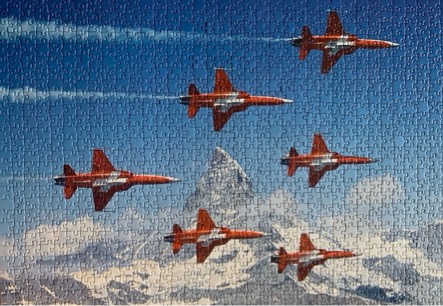As the image reveals, over the holidays, we puzzled.
Sharing this fact with friends and colleagues (and judging from social media), we were not alone. A study conducted on behalf of Ravensburger puzzle-maker found that American adults puzzle at least once a year and that 59% do so on vacation or over a holiday break — 75% during the winter months.
It’s easy to get caught up in daily life, especially after the holiday season ends and the cold winter months set in. This time of year, puzzles provide a relaxing, healthy form of self-care that can help both create a sense of wellness and prolong your life. Whether you’re looking for an escape from the digital world, seeking some “me time” or “we time,” or just to keep the winter blues at bay, puzzling is worth “fitting in” to your landscape this winter !
- Fun fact!
The first puzzle was created by a map engraver named John Spilsbury. In 1762, he mounted one of his master maps onto wood and then cut around the countries for the local school children to learn geography. Later, once printed on cardboard, puzzles became mainstream for millions with nostalgic pictures and landscapes.
Let’s discover why puzzles are really worth “fitting in” this winter
- Improve Mood
Solving puzzles is fun! It increases the brain’s production of dopamine, a neurotransmitter responsible for regulating mood and optimism. It also affects learning, memory, concentration, and motivation. Dopamine is released every time we do a puzzle and even every time we fit a piece into the right space.
- Lower Stress
Research suggests that puzzles and similar mental activities can provide stress relief. In our hyper-connected world with constant demands for our attention, focusing on a single task, like completing a puzzle, can put the mind into a meditation-like state and creates a sense of peace and tranquility.
- Better collaboration
Puzzle building together can help build collaboration between coworkers, friends, or family. Yale University researchers found that when people can puzzle together in the workspace it helps improve their relationships, cooperation, and teamwork. Solving puzzles together fills our basic human need for connection. Connection enhances not only wellbeing, but longevity.
- Prevent cognitive decline
Doing puzzles (and other games) can be considered brain training which has been shown to slow memory loss, improve reasoning, and speed of information processing. When you do a puzzle both sides of the brain must communicate and work together, increasing cognitive function while encouraging the growth of new nerve cells and strengthening the connections between them.
Keeping your brain active has been shown to prevent or delay symptoms of dementia and Alzheimer’s. Researchers have also found a relationship between the number of years someone has been solving puzzles and the probability that they will develop Alzheimer’s, so the sooner you start puzzling, the better!
- Better visual-spatial reasoning
To assemble a puzzle, we see different pieces and we must place them within a larger image. Doing this exercise regularly helps improve our spatial reasoning. This is particularly important because research suggests that today’s extensive GPS use leads to a decline in spatial memory and reasoning. Puzzling can help counterbalance this decline!
- Greater attention to detail
When solving a puzzle, especially if the pieces are very similar, it is crucial to pay attention to details. You need to train your eyes to find the small differences in colors or shapes that to complete the image. The ability to capture small details can help us in all aspects of our lives, especially at work. When we are more detailed and precise, the quality of our work improves.
- Improve memory
Puzzling strengthens neural connections and increases the generation of new connections. This increases mental speed and thought processes. improves neuroplasticity and short-term memory… all which help prevent mental decline and memory loss that can occur with age.
- Improve problem solving
The ability to solve problems and think critically is useful in almost any life situation and puzzles help us develop these skills. Since puzzles require us to take different approaches to solve them, we learn how to work by trial and error, formulate and test theories, and how to change track if necessary. These skills can be transferred to work, making you more innovative in problem solving, critical in thinking, and agile.
- Increase productivity
When you are happier and less stressed, it’s easier to focus. When your focus and concentration improve, your productivity skyrockets. If you’re having trouble staying concentrated on your studies, your work or are burdened with too much screen time, consider taking a short break to disconnect from work for a few minutes. Do a puzzle to reset your brain and come back refreshed and ready to start again.
Ready to “fit” puzzling into your winter landscape?
No barriers to entry. No rules or complicated directions. Pure fun and a new landscape to fulfil many self-care needs this winter. It’s time to take a break from your digitalized life to puzzle! Please share the results so we can all get that shot of dopamine!




